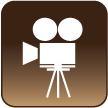Transcript
It's important to read a good variety of non-fiction texts in a kindergarten classroom. At this science station we were learning about a decomposing log and there's a vast amount of life in that log. We first read two versions of the non-fiction text The Log Hotel, and then the children had an opportunity to use props to show what they know. It also gave them a good opportunity to use the new vocabulary that was introduced in these texts. One fun activity you can do is use the non-fiction glove to help the children remember some of the elements in a non-fiction text. So they first talk about the topic. Then they tell three facts that they found in the text, and any questions or what are they wondering about that text. And, of course, we always talk about the title and the author when we read a text. I also have a story glove we use for when we're reading fiction. We talk about the characters, the setting, the problem, the solution, our favorite part, the title and the author, and finally the big idea or the message of the story.
In conjunction with out science topic of the decomposing log the children did something with me called Share the Pen, where they're getting an opportunity to write the sounds they know or some of the high frequency words. They also love the fact that their photographs are added in to the piece of writing.













